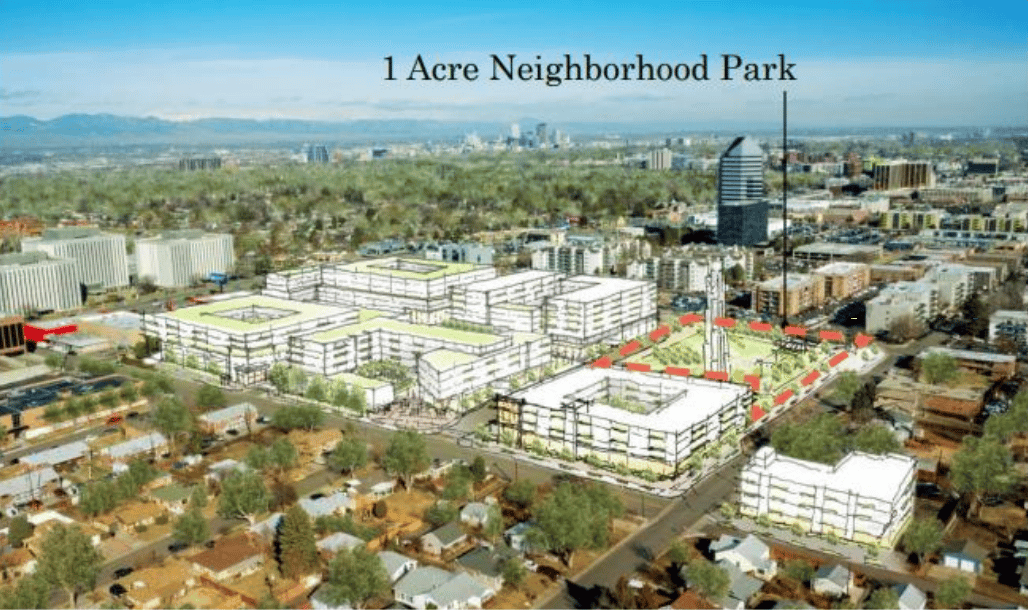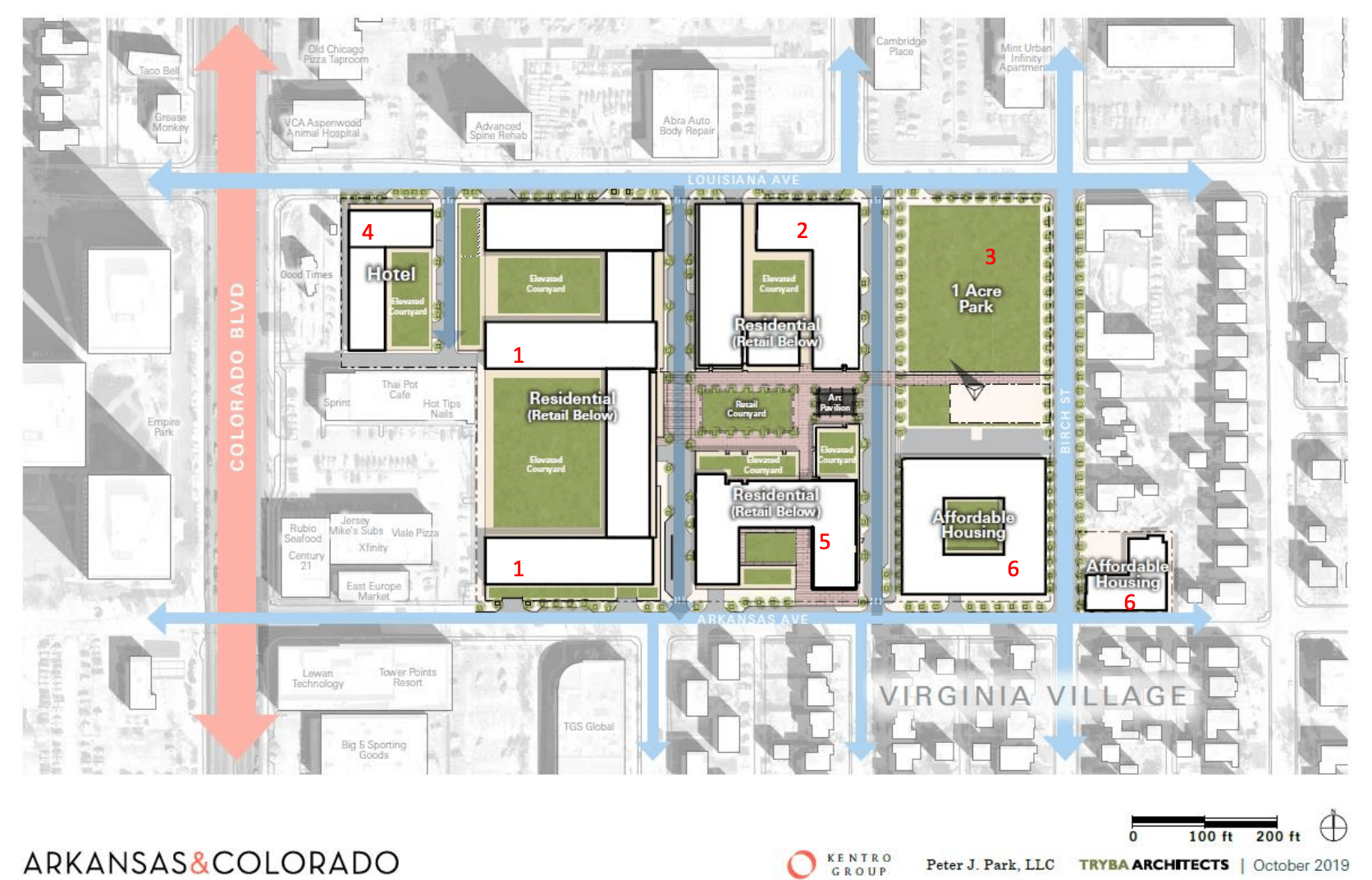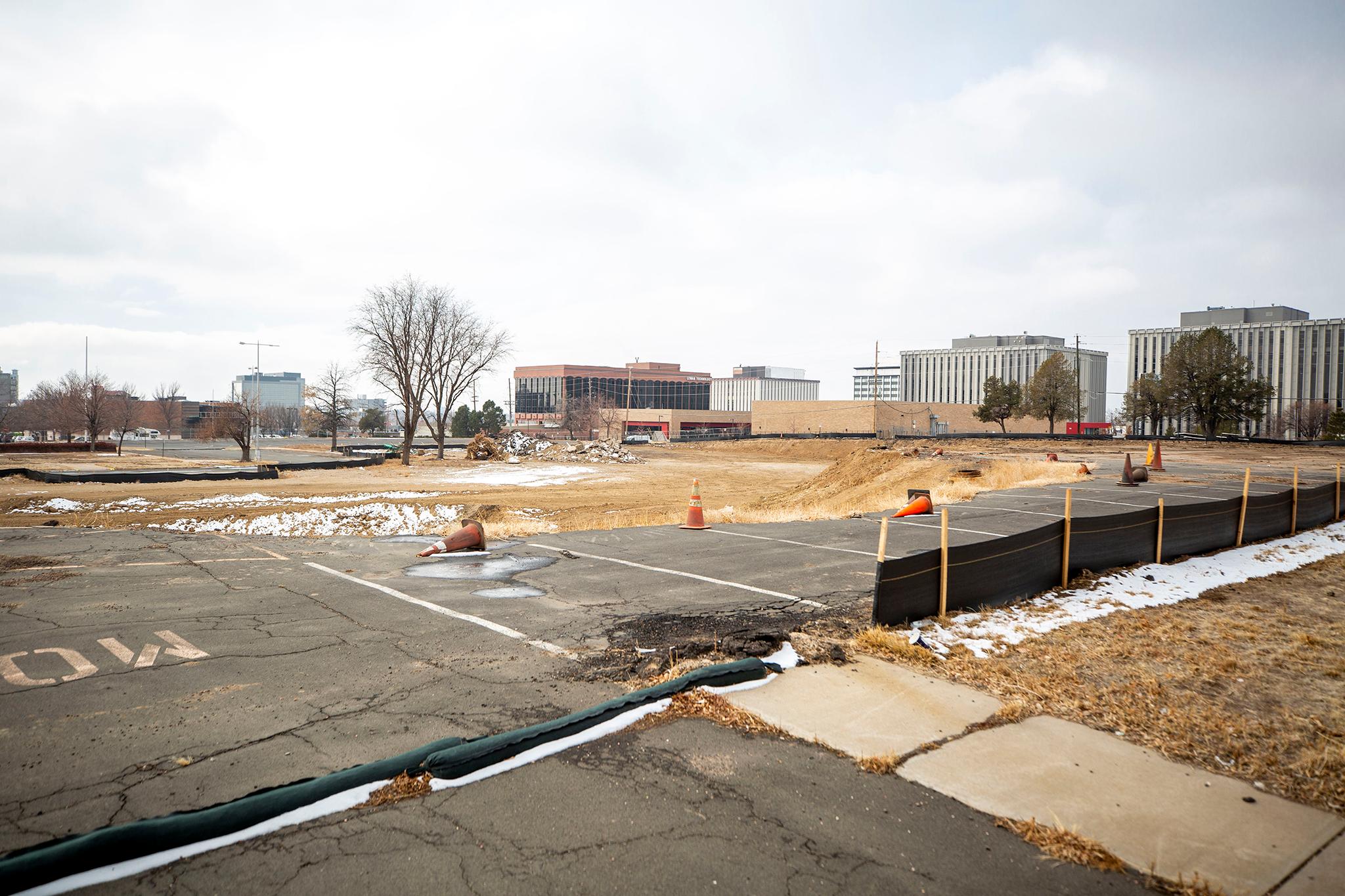Have you noticed that the huge -- and once hugely controversial -- development in Virginia Village hasn't happened yet? Kristin Jones, a neighbor of the abandoned Colorado Department of Transportation campus, has.
"It's kind of a bummer because it's just sitting there empty now," she told Denverite.
It's been close to three years since CDOT moved its Denver headquarters at 4201 Arkansas Ave. The building was razed nearly two years ago to make way for a mix of parks, apartments, condos, and a hotel with businesses on the ground floor. But the land has been sitting empty ever since.
The residential portion includes 150 homes for people making 60 percent of the area median income or less, or about $54,000 for a household of three. Kentro Group, the developer, has secured federal tax credits. But it has had trouble getting state tax credits, which companies can get for building affordable housing. The credits are competitive; developers, nonprofits and local government agencies apply to the Colorado Housing and Finance Authority to get them and they're necessary to make the project worthwhile for Kentro's profit goals, said Chris Viscardi, director of development for Kentro. But Kentro has applied twice and not been approved.


"We were really hopeful last year. In our second round of submitting, we felt like our application was really strong and it was just the competitive environment of how many applications were seeking (the tax credit)," Viscardi said. "So we're really hopeful about this year."
Kentro will file a third application for tax credits by April 1, Viscardi said. It's not uncommon for a developer's first application to fail, and for the second to work out based on feedback from the finance authority. But Viscardi said the last round was more competitive than usual because of high demand. If all goes well this time around, the developer envisions shovels in the ground in April of next year and a completion date in summer 2023.
Denver City Council has also paved the way for tax-increment financing, in which people who live and own businesses within the project area help pay for it.
Affordable housing is locked into the project, said City Councilmember Paul Kashmann, whose district covers the property. So it won't be built without that element. While there's no timeline for when the project has to be built, Viscardi said there's no gain in waiting.
"For us, we've owned the land now 18 months. Obviously there are dollars at risk and we want to see the project move as quickly as we can," Viscardi said. Asked what happens if Kentro doesn't get the state tax credits this year, he said, "It is just resubmittal, resubmittal, resubmittal, and trying to get the application as strong and buttoned up as we can."
Kashmann wants the project in his district and said he's not worried about whether it will happen, even if market forces delay things. He pointed to the old Gates rubber plant property west of Broadway, which in 2008 was primed for a much larger development anchored by a Sundance theater. And then the recession hit, causing the property to sit vacant for a dozen years.

"Whether it's this Kentro property or some other development, these types of economic downturns can really put a halt to stuff," Kashmann said.
During the public process for the property's transformation, some neighbors decried the project for its density. Some didn't want affordable housing in their neighborhood. Some attacked the development for the perceived lack of parking spaces, though 1.25 parking spots per home are required by zoning.
"Those that were excited about the development or are wondering when's it going to break ground," Kashmann said. "Those who weren't excited about the development are probably just kind of satisfied that there haven't been any major changes right now."












